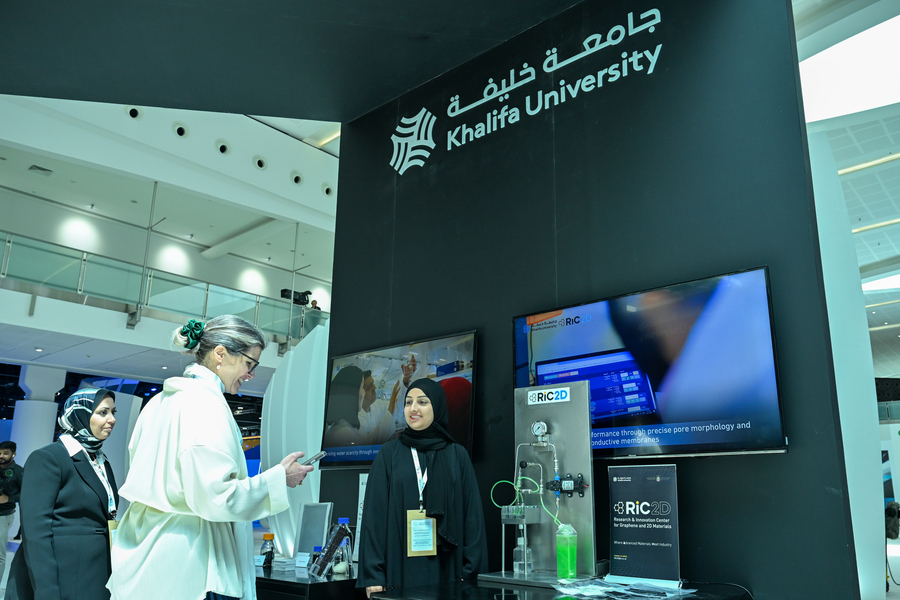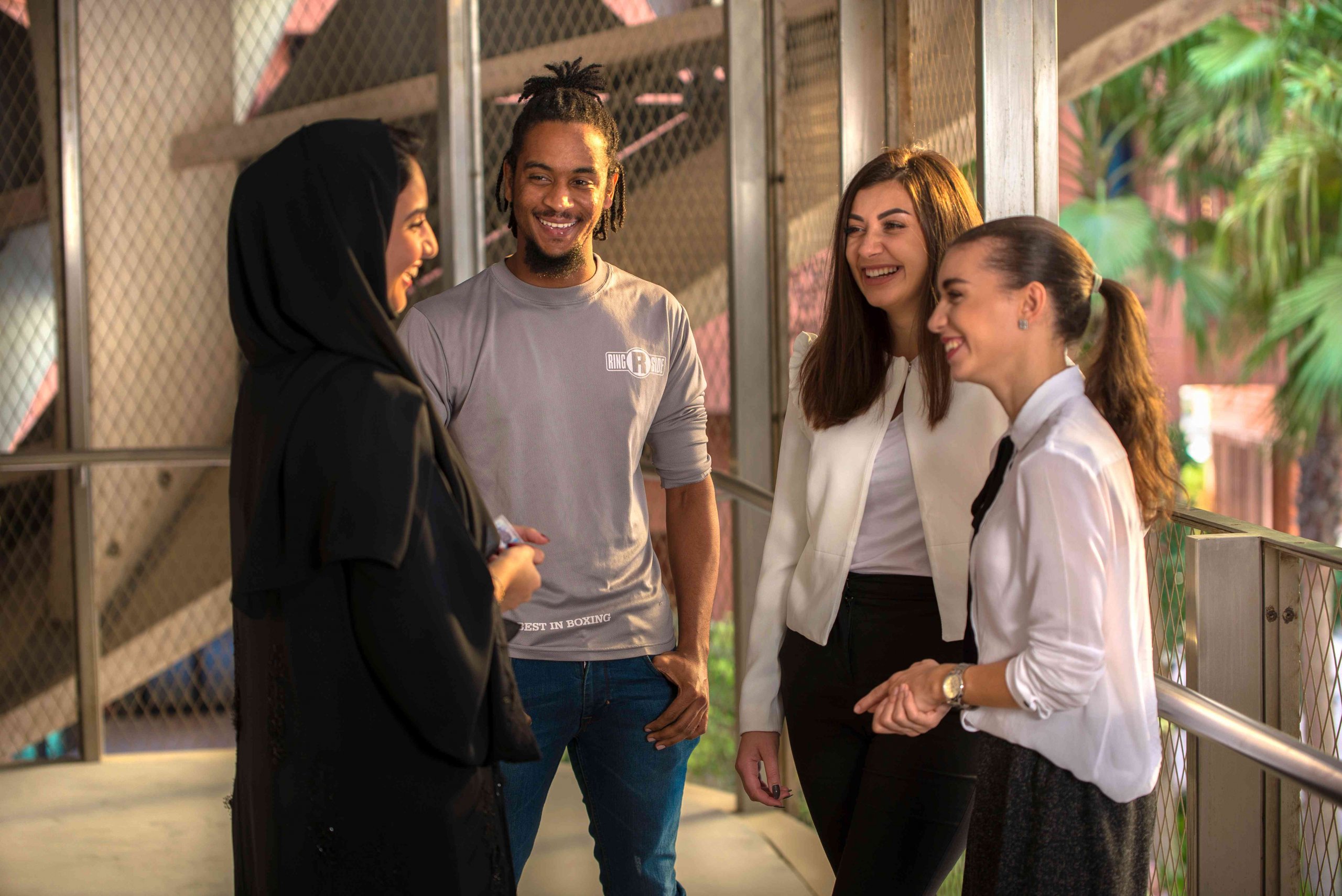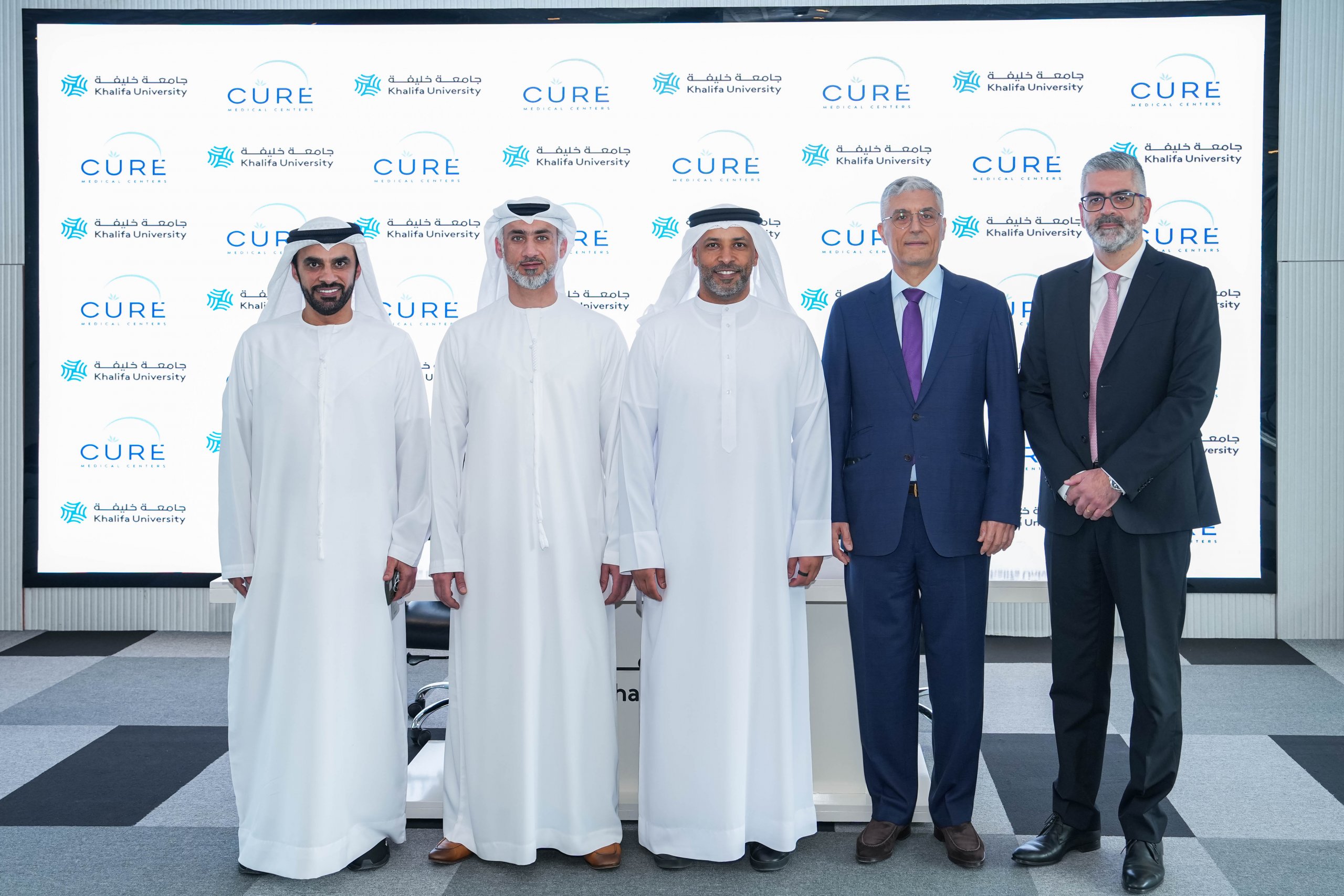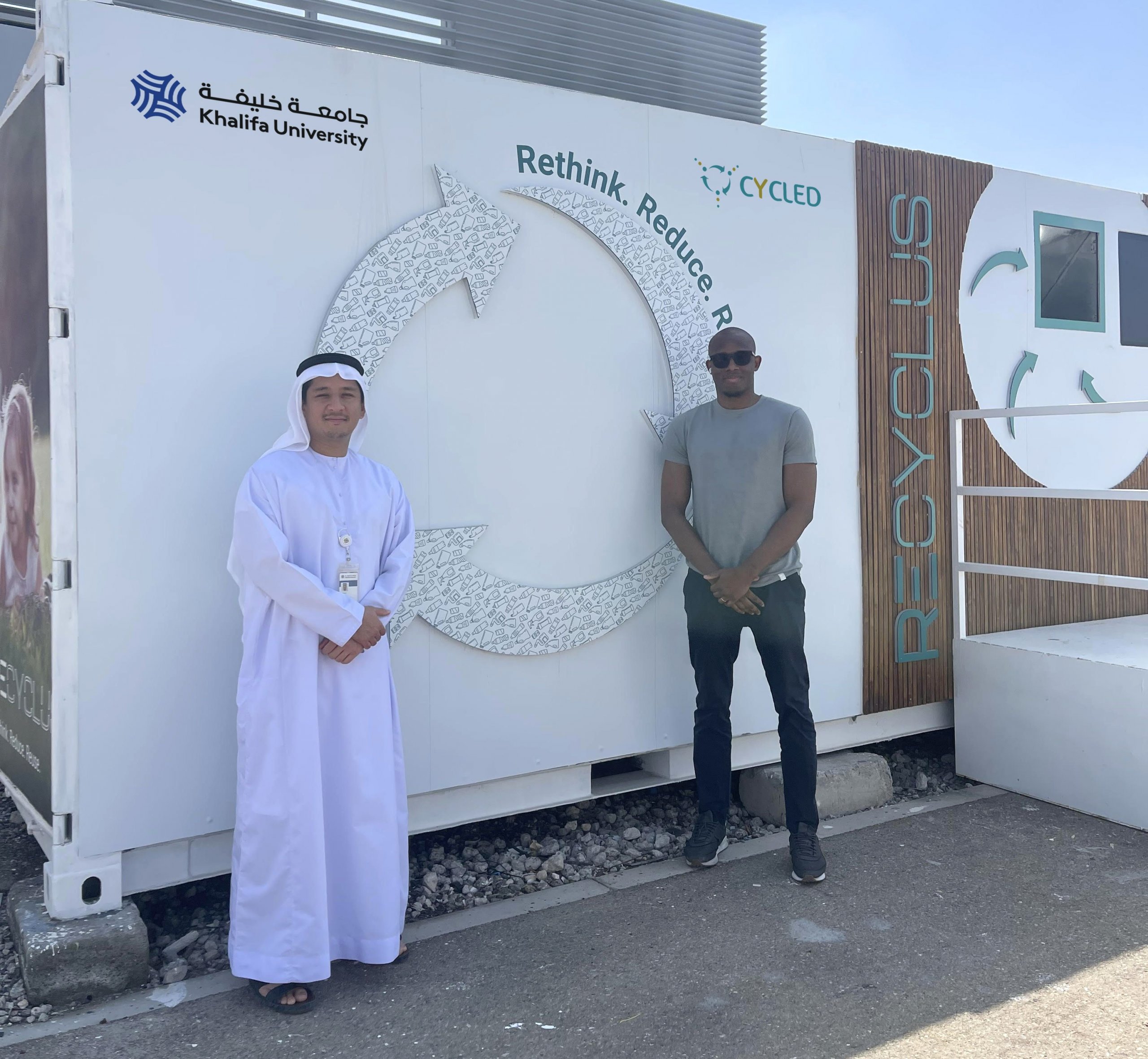UAE National Student Contributes to Technological Breakthrough in Clean Energy
Abu Dhabi-UAE: 08 July, 2013 – Masdar Institute of Science and Technology, an independent, research-driven graduate-level university focused on advanced energy and sustainable technologies, today announced its researchers have fabricated the very first bulk-hetero-junction solar cell in the UAE, marking another technological breakthrough for the country in clean energy.
This also reflects another key milestone – these are also the very first solar cells fabricated at the Masdar Institute cleanroom.
Ms. Mejd Alsari, a UAE national student, and Dr. Samuele Lilliu, a post-doctoral fellow working at the Nano-Optics and Optoelectronics Research (NOOR) Laboratory under Dr. Marcus Dahlem, Assistant Professor, Microsystems Engineering, have fabricated the first polymer-based organic photovoltaic solar cell (OPV), which can also be conveniently printed on flexible substrates. This has been achieved using Masdar Institute’s cleanroom facilities internally without any assistance from external fabrication facilities or expertise.
The OPVs with advanced aesthetic characteristics such as colors and design will be developed with inkjet-printing deposition techniques. These prototypes could be highly interesting for Building Integrated Photovoltaic (BIPV) applications and designers globally and in the region. Further to the OPVs research, large area organic photo-detectors based on the same technology, with potential applications in the medical, security and entertainment industry could also be prepared. A start-up venture based in Masdar City to transfer prototypes into final products may also be set up at a later stage.
Dr. Fred Moavenzadeh, President, Masdar Institute, said: “The outstanding feat of our researchers and faculty consolidates the status of Masdar Institute as a research-driven institution, continuously striving to contribute to the Abu Dhabi’s long-term objectives in advanced technology. The support of the country’s leadership has strengthened us to achieve this breakthrough. Our students and faculty will remain focused in their research on clean energy innovations that will ensure the creation of a sustainable knowledge economy in the Emirate of Abu Dhabi.”
The first bulk-heterojunction OPV solar cells fabricated at Masdar Institute are part of a new major research project on organic photo-detectors undertaken by Dr. Lilliu and Dr. Dahlem from the NOOR Laboratory. Other faculty members involved in the project include Dr. Amal Al Ghaferi and Dr. Marco Stefancich, Assistant Professors in the Materials Science and Engineering program, as well as Dr. Ammar Nayfeh, Dr. Jerald Yoo and Dr. Jaime Viegas, Assistant Professors in the Microsystems Engineering program, Dr. Matteo Chiesa, Associate Professor in the Materials Science and Engineering program, Dr. Simo Pehkonen, Professor in the Chemical Engineering program, and Dr. Bruce Ferguson, Director of Masdar Institute’s Center on Innovation Systems and Entrepreneurship.
High quality training and assistance during the fabrication process on the equipment in the cleanroom was provided by Mike Tiner, Manager, Fabrication and Microscopy Facilities, and Leslie George, Micro & Nanofabrication Instructor-Institute Initiatives. The fabrication process used to manufacture these cells is environment-friendly and does not produce any toxic waste.
The novel research project focuses on improving the performance of organic/hybrid bulk hetero-junction (BHJ) photo-detectors such as OPVs and organic photodiodes (OPDs). It equally aims to stress on the efficiency enhancement, lifetime lengthening, and fabrication cost reduction of OPV/OPD devices. Combining these three aspects are the focus of Mejd Alsari’s master research work. The project will keep a balance between academic research and the development of OPVs/OPDs based product prototypes that could target markets in the GCC and developing countries.
Mike Tiner said: “The team will continue to optimize the process to seek further gains in efficiency. Many of these gains are expected to result from understanding the interaction of the different materials used to fabricate the device. Masdar Institute is home to several powerful electron microscopes capable of investigating these interactions down to the atomic scale including Scanning Electron Microscopes and Transmission Electron Microscopes from FEI company in the Netherlands. The Cleanroom at Masdar Institute has been a work in progress for some time and it is a great honor for us to be part of the growth of the region as demonstrated by the solid progress made with these devices.”
The semiconductor ‘clean room’ and associated laboratories at Masdar Institute’s facility are part of the collaboration with Advanced Technology Investment Company (ATIC), an investment company in the high-technology sector.
Serving as a key pillar of innovation and human capital, Masdar Institute remains fundamental to Masdar’s core objectives of developing Abu Dhabi’s knowledge economy and finding solutions to humanity’s toughest challenges such as climate change.
Established as an on-going collaboration with the Massachusetts Institute of Technology (MIT), Masdar Institute integrates theory and practice to incubate a culture of innovation and entrepreneurship, working to develop the critical thinkers and leaders of tomorrow. With its world-class faculty and top-tier students, the Institute is committed to finding solutions to the challenges of clean energy and climate change through education and research.






